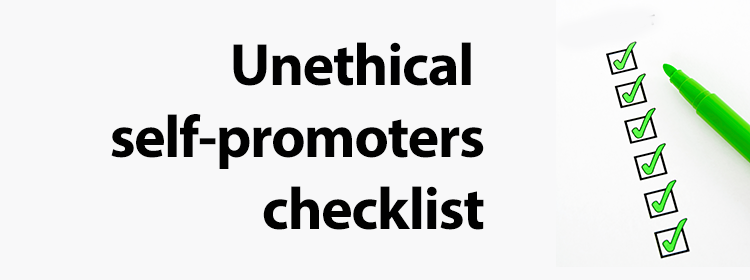
This is Part 1 of a 2-part series on Unethical Self-Promoters.
Back in 1988, I was introduced to a body of research* that focused specifically on the concept of self-promotion, prospecting, and new business development, and the learned behaviours and attitudes that give rise to the fear of self-promotion and sales call reluctance. This body of research was an illuminating, eye-opening, life .....


New Article Email Notification